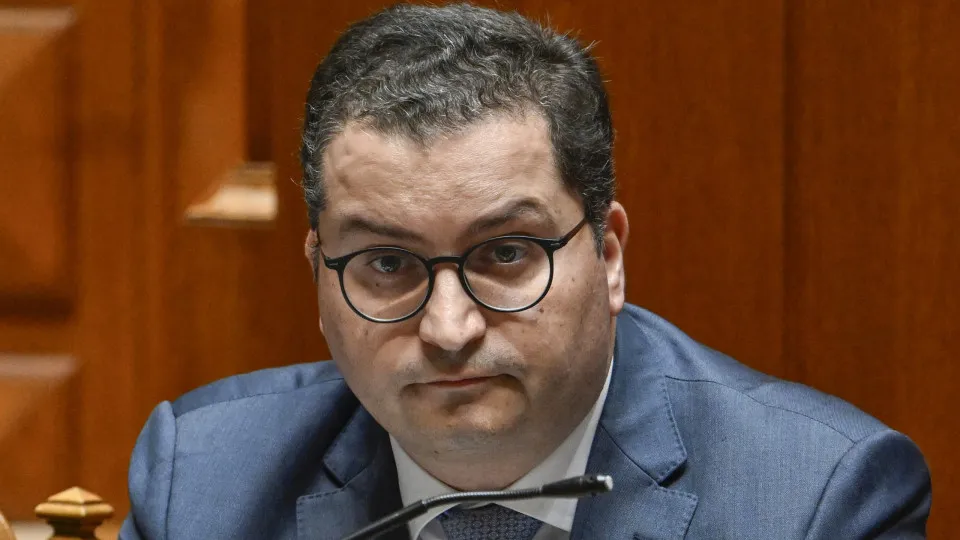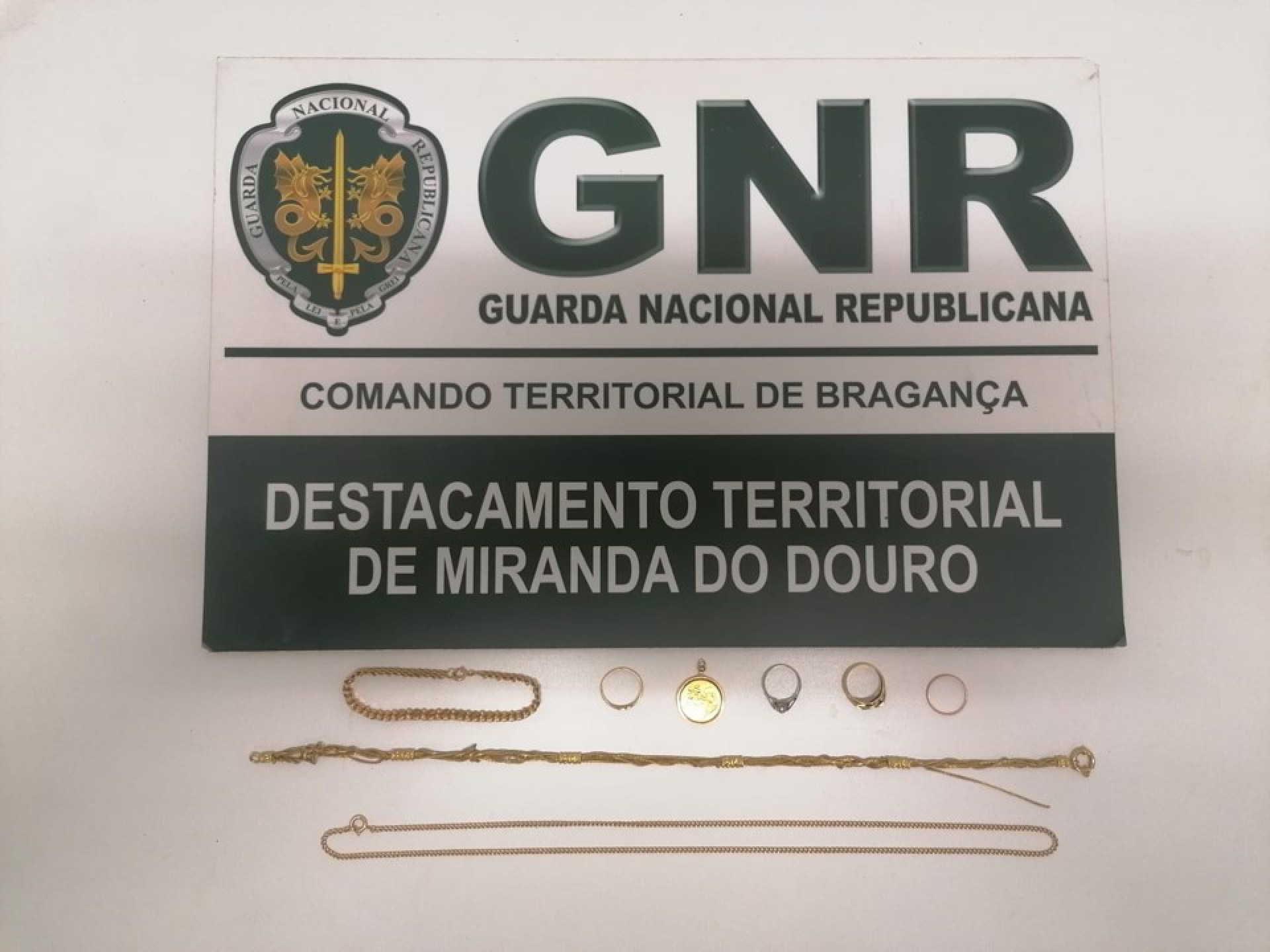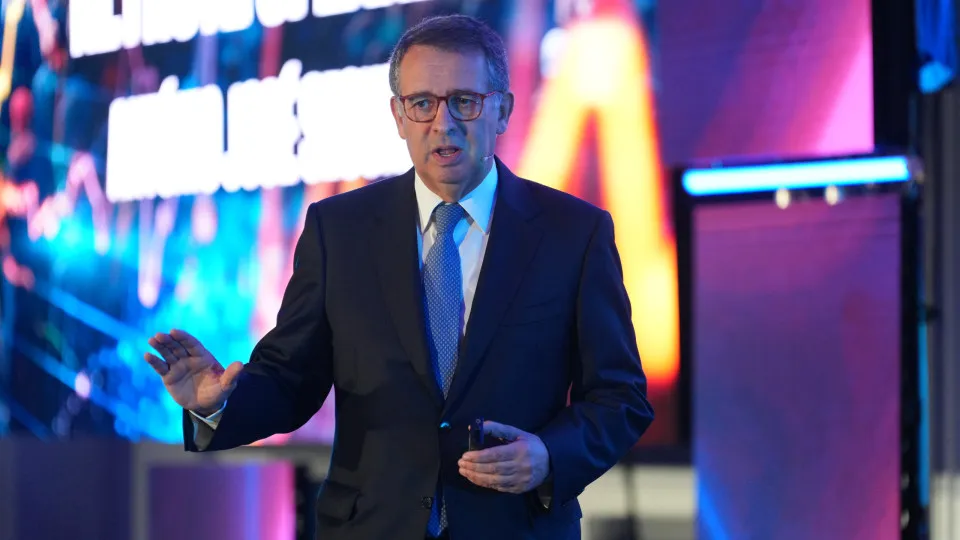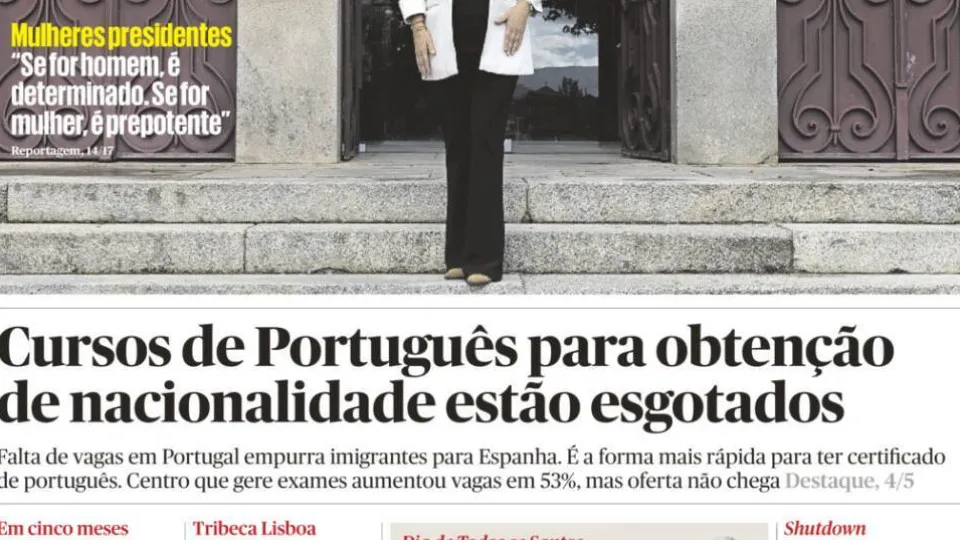
The Minister of State and Finance marked Saving Day today by teaching a class to students at a Lisbon secondary school, explaining the best ways to invest money while avoiding errors and fraud.
“Be careful with what you find on the internet, especially if you see my face in some ads; it’s fake. I have already asked the Polícia Judiciária and the SIS (Security Intelligence Service) to try to stop it, but it’s almost impossible,” he warned, referring to internet scams.
Joaquim Miranda Sarmento addressed 150 11th-grade students at José Gomes Ferreira Secondary School in Lisbon.
The Finance Minister, 47, attended the same school during his secondary education and told the students that all investments are subject to taxes.
“Only two things are certain in life: death and paying taxes. Therefore, all the investments you make are taxed,” he said.
At the beginning of the class, the Finance Minister explained basic investment concepts in relation to inflation rates, the time value of money, opportunity cost, and the relationship between risk and return.
He also explained how the banking system works, stating that “the best thing” young people can do to save is to put part of their accumulated money into term deposits and the rest into funds, stocks, and bonds.
“Think about saving from a medium and long-term perspective, think about what you would like to do in two years or once you turn 18. You might want to drive, travel more, and consider the money you need. Think about how much you can save each month and, especially, during times when you receive more, such as birthdays and Christmas,” said the Minister.
He also warned that sacrifices must be made because not everything can be bought and advised that it is easier to “negotiate” with parents when some money has been saved.
He advised students to consider the “diversified” banking products available to them.
“The best option is to open a bank account and put some into funds that might offer higher returns (deposits and funds). Beware of risk. Take risks, but don’t take too many. Be wary of internet scams and study hard.”
At the end of the class, a student asked the Minister if it is “worth it” to invest in cryptocurrencies, but he was advised against it by the Finance Minister.
“If my Secretary of State for the Budget were here, he would say enthusiastically yes (…) because he is a staunch cryptocurrency investor. My suggestion is not to invest more than 1% or 2% of your money,” said the Finance Minister to the 11th-grade student.
Joaquim Miranda Sarmento noted that those who invested in cryptocurrencies in recent years have made money, but considered that it’s “a bubble,” as assets tend to appreciate without an underlying economic reason.
Meanwhile, the Finance Minister emphasized that studying is very important for young people’s future, in any school, and criticized school ranking lists.
“There is a lot of talk about school rankings. They are completely irrelevant because the journey is made by each of you. I studied at this school, and I am a university professor and the Minister of State and Finance,” he said.
The Minister noted that young people today have access to all existing information and that students now have a “broader range of opportunities” than in the past, such as studying abroad.
Today, to mark Saving Day, financial literacy initiatives took place in schools across the country with the participation of government members, academics, and institution leaders.
In addition to the Finance Minister, the Governor of the Bank of Portugal was also present at a secondary school in Coimbra.




